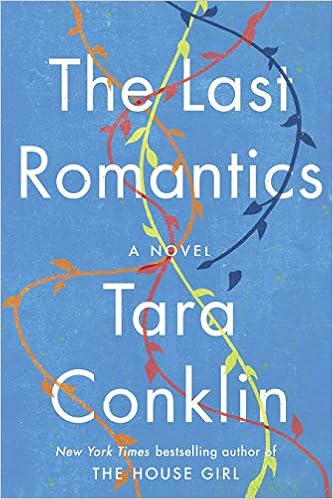The novel begins in 2079 when centenarian poet Fiona Skinner, at a literary event, is asked a question about her most famous poem. Fiona answers by telling her life story. She begins by discussing her father’s sudden death and her mother’s subsequent depression. Because of their mother’s withdrawal, Fiona and her three siblings are left to themselves for a couple of years. That period, called The Pause, sets the pattern for much of their lives.
Renee, the eldest, becomes the substitute parent and her sense of
responsibility motivates her choice of career.
Caroline is the frightened one who takes refuge in marriage and a family. Joe is devastated by the loss of his father
but isn’t able to recover because he is expected to protect his sisters; as a result
his psychological life remains fragile though he outwardly has all the
advantages. Fiona, the youngest, is
coddled and lives in books and worlds created by her imagination; as an adult,
she drifts unfocused through much of life, though writing eventually brings her
success.
The book examines the evolving relationships among the siblings. As children they are inseparable, but as
adults they drift apart, come together, and drift apart again. They keep secrets from each other, presumably
to protect each other but, inevitably, these secrets/lies lead to emotional
distancing. Consequently, they are not
always able to provide support when it is most needed.
None of the four siblings is especially likeable or sympathetic. Fiona’s blog can only be described as
despicable; Joe’s lifestyle, shallow; Renee’s ambition, all-consuming; and
Caroline’s lack of self-knowledge, depressing.
The girls’ treatment of men, the men with whom they have romantic/sexual
relationships, is disturbing. Yes, they
were impacted by The Pause, but eventually it is appropriate that they move on
and take personal responsibility for their choices.
The book examines love. At first
Fiona states that her story is “about the failures of love” and she speaks
about learning “the ways in which love might disappear.” She goes so far as to state that “’The love
of your life is always the one you have betrayed the most. The love that defines you is the one upon
whom you once turned your back.’” Renee
asks, “Why didn’t people understand the responsibility that came with being the
subject of someone’s love?” In the end
Fiona states the theme quite directly: “I
was wrong to tell you that this is a story about the failures of love. No, it is about real love, true love. Imperfect, wretched, weak love. No fairy tales, no poetry. . . . This then is
the true lesson: there is nothing
romantic about love. Only the most naïve
believe it will save them. Only the
hardiest of us will survive it.”
Sections of the novel are interesting; the childhood part is certainly
one of those. Others are much less
so. Point of view is puzzling; Fiona is
the first-person narrator of the story, yet portions, like Joe’s time in Miami,
give information she could not possibly know.
This occasional switching to third person omniscient is jarring because
of the frame narrative technique employed.
I was not impressed by Conklin’s The
House Girl when I read it a couple of years ago, but I thought I’d give the
author a second chance. This sophomore
novel is better, but I found it difficult to engage with the characters; at
times, I felt totally indifferent.

No comments:
Post a Comment